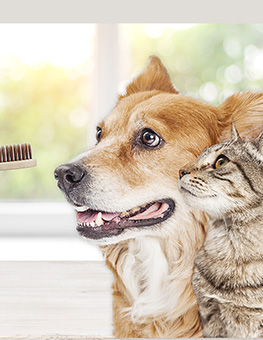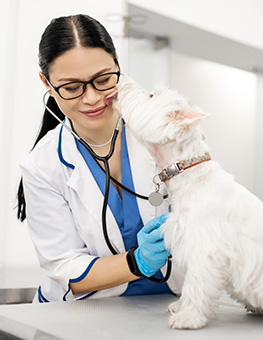Using Dog Treats and Supplements Wisely
Certain health conditions can be supported with nutritional supplements.
Like us, each dog has different nutritional needs. Your pet may require different amounts of fat, minerals or fiber than others. If you feed your dog pre-packaged foods he might receive adequate but not optimal nutrition—particularly if he has special needs. Targeted dog supplements can help address the issue of nutritional deficiency.
Supplements are available to address many different conditions, stages and events in your dog’s life. A few of the more common are listed below.
Skin and coat condition. Your dog’s skin and fur is a reflection of his inner health. Is his fur dry and brittle (not normal for that breed)? Are there any bare patches? Does your dog seem to be scratching and biting excessively? A dry, brittle coat and flaky skin can indicate a lack of dietary fat in his food. Adding an essential fatty acid supplement to his daily rations is a good way to replenish these much-needed oils.
Obesity. Many studies now confirm that obesity is linked to skin problems, musculoskeletal problems and diabetes. Diet and exercise is the key to losing weight. If your dog’s weight is in the red zone, eliminate “treats” from his diet—they usually carry a lot of excess calories. Cutting back on the amount of food you feed may be helpful in shedding the extra pounds. If your vet feels it is appropriate, he may suggest a prescription diet that is strictly designed for weight loss.
Puppy growth. Young pups could benefit from a daily multivitamin. These may be necessary to help build strong bones and healthy tissue.
Older pet needs. Older dogs need a boost in vitamins, minerals and electrolytes, because they are absorbing fewer through the intestinal tract. A daily multi-vitamin would shore up any valuable nutrients lost in digestion.
Dental health. Use treats to help protect your dog’s health in addition to rewarding him. Chewing promotes healthy, strong teeth and combats bad breath in your dog. Supplement your dog’s diet with various types of chews.
- Hartz® Dentist’s Best® rawhide chews treated with DentaShield™ is clinically proven to reduce tartar by 83%.
- Dog Chew toys are another great way to protect your dog’s teeth. They are entertaining and can effectively clean his teeth if he spends time gnawing on them.
- Rawhide chews also offer a good way to clean your dog’s teeth. Be sure that your dog actually chews on the rawhide rather than just swallowing it. If he swallows the rawhide too quickly it will simply provide excess calories without the dental benefits.
- Dog biscuits can also provide some dental benefits. As long as the biscuit is big enough, it will offer useful cleaning action. Remember that dog biscuits are often sweet and high in calories.
Following these tips can help you be a better dog owner and friend. It is important to take the time to give your dog supplements to safeguard his health and to use treats wisely.

















